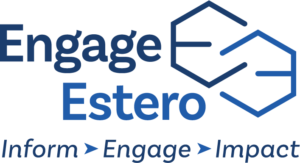How Impact Fees Support Infrastructure in SW Florida
What you need to know.
Most people believe “Growth should pay for Growth.” In SW Florida, specifically Lee County, new development should pay for the infrastructure to support the new development.
by Mark Novitski, contributing author
Webster defines infrastructure as “the system of public works of a country, state, or region. Also, the resources (such as personnel, buildings, or equipment) required for an activity. To clarify, Infra- means “below,” so the infrastructure is the “underlying structure” of a country and its economy, the fixed installations it needs to function. These include roads, bridges, dams, water and sewer systems, railways and subways, airports, and harbors. These are generally government-built and publicly owned.”
2021 Florida Statutes, Impact fees 163.31801, (3)(a) defines infrastructure as “a fixed capital expenditure or fixed capital outlay, excluding the cost of repairs or maintenance, associated with the construction, reconstruction, or improvement of public facilities that have a life expectancy of at least five years; related land acquisition, land improvement, design, engineering, and permitting costs; and other related construction costs required to bring the public facility into service.” https://www.flsenate.gov/laws/statutes/2021/163.31801
This article will categorize infrastructure as follows:
The developer builds and funds roads (private) within the new development. The roads (private) within the development are maintained by the developer, Homeowners Association (HOA), or Community Development District (CDD).
Public road widening, expansion, and updating are paid for by the municipality from gas taxes (which are flat and projected to decrease with more electric vehicles), proportionate share (negotiated for each new development, with restrictions, and must be used in the general area), impact fees (restrictions and must be used in the general area), the general fund, capital funds, and unused tolls.
- EMS/Fire Rescue is funded by impact fees (restrictions and must be used in the general area), proportionate share (negotiated for each new development, with restrictions, and must be used in the general area), property taxes, state funding from insurance policies, and developer donations (e.g., acreage for a fire station)
- Parks & Recreation are funded by impact fees (restrictions and must be used in the general area) and developer donations (pocket park – Via Coconut 1 acre park)
- Schools – the Capital Plan https://www.leegov.com/dcd/Documents/Planning/LeePlan/Tables/3b.pdf is funded through property taxes, sales taxes, impact fees, CO & DS, Charter Schools Revenue, Misc, and Interest. Developers can provide funds through proportionate share or land donations.
- The developer installed Potable Water and Sanitary Sewer maintained by Lee County Water & Sewer. This includes sewer pump stations (some with generator backup). The developer may be required to extend potable water and sanitary sewer service if the service is unavailable near the development. Depending on the location, the developer may be required to construct and install a potable water storage tank and pump station (Kingston): user fees and capacity* funds fund sewer and potable water treatment facilities.
- Electricity is installed by the developer and maintained by the electricity provider.
- The developer and the service provider install cable/Fiber/Phone/Internet to maintain the system.
- Natural gas is installed by the developer and maintained by the service provider.
- The developer installs Irrigation systems, including irrigation pump stations. The developer, CDD, or HOA maintains the system. This may include reclaimed water from Lee County Water and Sewer.
Four impact fees are collected when the building permit is submitted. Interestingly, expected/anticipated impact fees cannot be bonded. The result is the development build-out is way ahead of the infrastructure build-out, specifically roads and schools.
The Lee County current impact fee schedule can be reviewed online.
*Corrected on Nov. 17. General funds are not used as incorrectly stated originally.
Fire Control District impact fees are 100% for Bonita Springs Fire Rescue, Estero Fire Rescue, and San Carlos Park Fire Rescue within the municipality and in unincorporated Lee County.
Road impact fees in the Village of Estero and Bonita Springs are 100%.
Corkscrew Road (Lee County Road 850) east is a perfect example of development buildout before road infrastructure—currently, Corkscrew Road phase I is scheduled for completion sometime in 2024. Phase II (east boundary of Bella Terra to Alico Road) will start later this year. Phase III (Alico Road to the east entrance of Verdana) is in the Lee County Metropolitan Planning Organization (MPO) and Lee County Department of Transportation (LDOT) out-year plans. https://leempo.com/ Phase IV (Verdana to the Collier County line [for Kingston]) is in the concept stage.
There are challenges in collecting and using road impact fees when multiple jurisdictions are involved. Coconut Road West is the perfect example. The Village of Estero owns and is responsible for most of the road. The high-rise construction in that area is within the city limits of Bonita Springs and unincorporated Lee County. This results in the road impact fees being collected by Bonita Springs and unincorporated Lee County, leaving Estero to fund the Coconut Road widening/expansion/updating.
If you have concerns about Lee County roads, Village of Estero roads, or cost-sharing of road improvements, contact your Lee County Commissioner, Village of Estero Council Member, and Bonita City Council.
Corkscrew Road: Cecil Pendergrass, dist2@leegov.com
Coconut Road: Joanne Ribble, jribble@estero-fl.gov
Rick Steinmeyer, rick.steinmeyer@cityofbonitasprings.org
Engage Estero is an all-volunteer, nonpolitical, nonprofit Community Engagement Association. We exist to inform citizens of significant community issues and encourage citizen engagement to favorably impact the quality of life in greater Estero.
Be Informed,
Get Engaged,
and Make an Impact!





